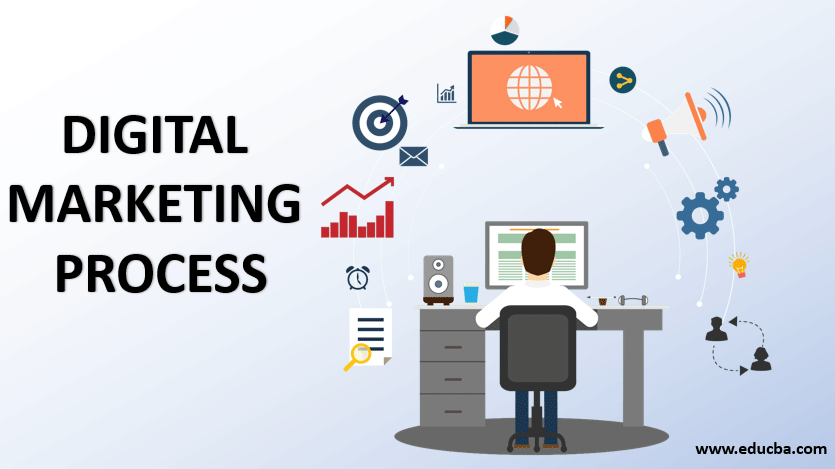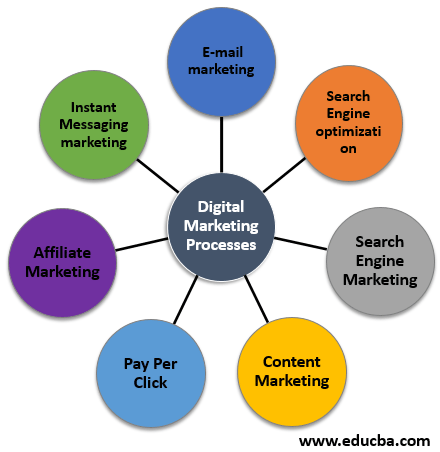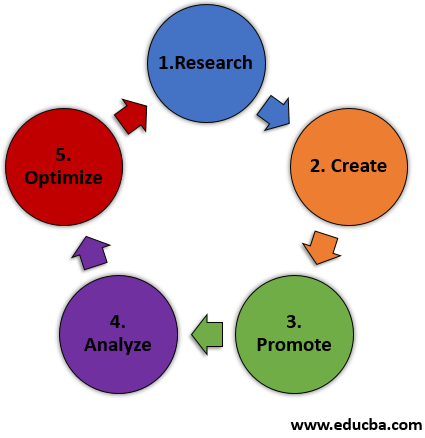
Introduction to Digital Marketing
There has been a revolutionary transformation in the marketing trend. Consumers and the companies are now shifting towards digital marketing campaign due to the significant benefits and merits offered by digital marketing when compared to traditional marketing methods. In this era of digitization, digital marketing has brought huge relief to the buyers/consumers/customers while either buying or selling their products and services. The marketing teams can target the consumers/buyers/sellers globally and can reach out to the maximum population to establish their brand in the market and to stand out among the competitors and brands who have already made their mark among the consumers. Digital marketing can be defined as the marketing method to sell/buy/promote/advertise a product(s) or service(s) online or over the internet and other digital platforms. The digital marketing process is a term with a broad meaning and covers various methods and processes to achieve digital marketing goals and objectives.
Different Types of Digital Marketing Process
Below is a diagram to show different types of digital marketing process:
Below are various types of digital marketing processes which are being used widely by the marketers to promote their product(s) or service(s) online:
1. E-Mail Marketing
E-mail marketing is one of the most popular digital marketing processes being used today. E-mail marketing is the process of using e-mail for promoting or advertising product(s) or service(s).
2. Search Engine Optimization(SEO)
Search Engine Optimization is the method of optimizing the search engine for fetching the organic search related to the product(s) and service(s). SEO is today’s most promising career opportunity in the field of digital marketing which has created loads of job opportunities and has helped the job seekers to pursue their career.
3. Search Engine Marketing
Search engine marketing is the digital marketing process which focusses more on the paid promotions and advertisements. Search engine marketing increases the popping up or visibility of the paid advertisements of the product(s) and services(s). SEM is also one of the most promising careers in today’s digital era.
4. Content Marketing
This digital marketing process focusses on creating and promoting quality content among consumers. Content which is genuine, and which catches the attention of the consumers. This content can be written content, audio or video content
5. Pay-Per-Click Marketing
Pay-Per-Click is again mostly used for the paid campaigns as it helps to boost the ranking of the product(s) and service(s) on the search engines and other digital platforms so that when the anyone searches that category of product(s) and services(s), the highest-paid will be ranked first and subsequently will be listed first.
6. Affiliate Marketing
Affiliate marketing is a type of digital marketing in which any person collaborates with any business firm/organization for producing traffic and earns a commission for the traffic generated. Thus, affiliate marketing is a very efficient method for making money and is a very good field for making a career especially for bloggers.
7. Instant Message Marketing
Instant message messenger, as the name, only suggests it is the process for promoting the product(s) and services(s) through the messaging apps or messengers. Nowadays, marketing has become digital and every brand has got its own chatbot or messenger using which they can advertise their brand.
Understanding the Flow for Digital Marketing Process
Below is a diagram for understanding the flow for digital marketing process:
Lets Understanding the Flow for Digital Marketing Process
1. Research
- In the research stage, all the necessary information related either to the product(s)/service(s) or the target audience/market is collected, and the information collected during the research stage is used for making decisions. This information is very helpful in strategizing the marketing campaign. Following information are collected during this stage:
- About the brand/business/organization.
- About the target audience/target market.
- About the product/service being promoted.
- About the market, a competition to promote product/services and to stand out among the existing brands.
2. Create
- In this stage, the information collected in the research stage is analyzed and strategized to create the marketing campaign. The campaign is created as per the goals and objectives of the organization and the as per the vision of the stakeholders, how they want their product to be advertised on different platforms.
- This step covers the branding strategy, content strategy, etc. The goal is to reach maximum customers and to generate maximum revenue at the same time.
3. Promote
Once the marketing campaign is created and strategized, the online marketing agency starts working on promoting the product(s)/service(s). There are various digital platforms for promoting a brand, product(s)/service(s) like:
- Search Engines (Google, Bing, Yahoo, Etc.)
- Display Networks
- Social Media
- E-Mail and Affiliate Marketing
- E-Commerce Websites and Other Marketing Portals
4. Analyze
- Now comes the analyzing stage in which the results and outcomes of the marketing campaign are analyzed. The results or the outcome from various promotion channels are collected and analyzed for generating the business reports in terms of sales and revenue. This analysis helps to identify the grey areas and helps the marketing team to improve those areas and to prepare for future marketing. Google Analytics is one of the most popular analytics tools used for the analysis and basically it helps to identify the target audience response, behavior of the consumers and the data collected helps to convert the potential leads into business.
- Digital marketing is thus a very effective marketing channel used by both consumers and marketers to deliver and to purchase the product(s) and service(s). Digital marketing works in integration with the business strategy and it is very important to draft the marketing campaign as per market standards and the requirement of the target audience. The digital marketing processes have been very efficient in bridging the gap between the customers and the companies and promotes bidirectional communication between them.
- The customer can give their opinion and feedback to the marketing companies and the business teams which consequently helps the companies to provide better services to the customers/consumers/buyers. Digital marketing has almost captured half of the available market and there is no way to stop. IT has emerged as one of the promising careers and it is still evolving. The future is digital and digital marketing is going to be the backbone of the digital infrastructure in the coming future.
Recommended Articles
This is a guide to Digital Marketing Process. Here we discuss the various types of digital marketing processes which include search engine marketing, content marketing, and instant message marketing, etc. You may also look at the following articles to learn more –




